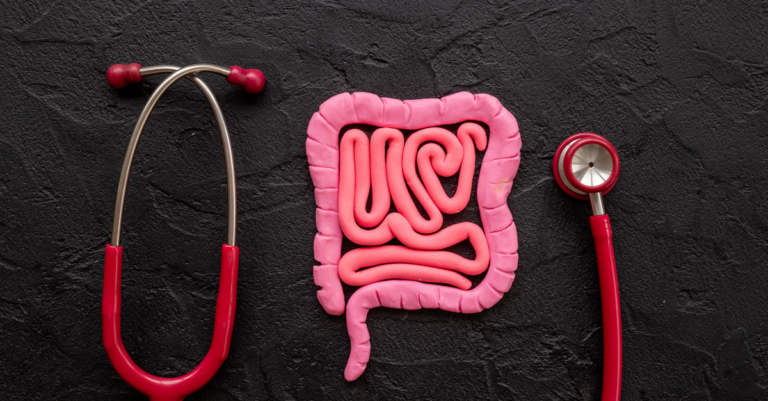The journey of weight loss and blood sugar management can often feel like an uphill struggle. If you’ve tried everything from fad diets to intense workouts with minimal success, or if those stubborn post-baby pounds just won’t go away, medications like GLP-1 (glucagon-like peptide-1) agonists might be the breakthrough you’ve been seeking. Often highlighted in the media as quick fixes, these medications are more than just weight-loss aids—they offer a surprising range of health benefits worth exploring. But are they right for you? Let’s dive in and find out!
What are GLP-1 Agonist Medications?
GLP-1 agonists are a class of medications traditionally prescribed for managing type 2 diabetes. However, their usage has expanded to include off-label applications for prediabetes and weight loss after comprehensive clinical trials. Essentially, these medications mimic the effects of GLP-1, a hormone naturally produced in your gut.
Common GLP-1 Agonist Medications
Several GLP-1 agonists have gained traction for blood sugar control and weight management, including:
- Dulaglutide (Trulicity)
- Tirzepatide (Mounjaro)
- Semaglutide (Ozempic and Wegovy)
- Liraglutide (Saxenda and Victoza)
How GLP-1 Agonists Work
So, how exactly do these medications work their magic? GLP-1 agonists act by mimicking the GLP-1 hormone’s effects, stimulating insulin secretion when you eat and helping regulate blood sugar levels. They also slow gastric emptying, meaning food stays in your stomach longer, which helps curb your appetite. This dual action makes it easier to maintain healthy blood glucose levels and encourages weight loss.
Typically administered as weekly subcutaneous injections, GLP-1 agonists can be injected into areas with fat just beneath the skin, such as the abdomen or back of the arms.
Clinical Effectiveness
Numerous studies support the effectiveness and safety of GLP-1 agonists for weight loss. For instance, research involving Ozempic (semaglutide) showed an astonishing average weight loss of 14.9% over 68 weeks—effectively doubling the results of other weight loss medications on the market (Wilding et al., 2021). This drug not only reduced total fat mass but also supported the growth of lean body mass.
Another standout, Tirzepatide, has shown promise in improving insulin sensitivity and lowering hemoglobin A1C levels, which measures blood sugar control. As a dual-action peptide, it targets both GLP-1 and GIP (glucose-dependent insulinotropic polypeptide) receptors, enhancing its efficacy.
Common Side Effects of GLP-1 Medications
While GLP-1 agonists like Semaglutide and Tirzepatide are generally considered safe, they may cause side effects, especially at higher doses. Common issues include:
- Nausea
- Diarrhea
- Stomach cramps
- Constipation
- Increased heart rate
These gastrointestinal disturbances, such as nausea and cramps, are often linked to slower gastric emptying, a hallmark of these medications. To help minimize these effects, it’s advisable to start with a lower dose and gradually increase it as needed.
Early studies indicated potential risks for conditions like gallstones, pancreatitis, kidney dysfunction, and even vision changes. Because of these considerations, it’s essential to have a comprehensive evaluation and discussion with your healthcare provider before starting treatment.
Healthy Lifestyle Factors to Support Medical Weight Loss
While GLP-1 agonists can be effective in promoting weight loss, integrating healthy lifestyle choices is crucial for sustainable results. Without these lifestyle changes, weight loss may not stick once medications are tapered down or stopped, highlighting the importance of long-term habits for maintaining health and achieving lasting weight management.

Anti-Inflammatory Diet
Eating well is one of the best gifts you can give yourself. A nutrient-rich diet that focuses on high-quality proteins, plenty of vegetables, low-glycemic fruits like berries, and healthy fats from sources such as nuts and seeds can set the stage for success. It’s wise to limit processed foods and added sugars, which can derail your progress. Staying well-hydrated is also vital—aim for at least half your body weight in ounces of water each day.
Healthy fats are your friends here, too. Incorporate monounsaturated fats like olive oil and avocados, as well as omega-3 fatty acids from cold-water fish and flaxseeds. Not only do these support weight management, but they also help prevent cardiovascular disease and diabetes.
Constipation Management
Managing constipation is crucial for effective weight loss. Regular bowel movements help eliminate waste and toxins from the body, preventing the build-up of substances that can hinder weight loss efforts. A diet rich in fiber is essential as it adds bulk to the stool and promotes regularity, making you feel fuller longer and reducing overall calorie intake. Incorporating foods like fruits, vegetables, whole grains, and legumes can significantly boost your fiber intake. Additionally, magnesium plays a vital role in muscle function and relaxation, including the muscles in the digestive tract. Magnesium supplements or magnesium-rich foods such as leafy greens, nuts, and seeds can help regulate bowel movements and alleviate constipation, supporting your weight loss journey.
Exercise
Regular physical activity is essential to a healthy lifestyle. With many Americans not meeting activity recommendations, it’s even more crucial to make movement a priority. Aim for at least 150 minutes of moderate-intensity exercise each week, combined with muscle-strengthening activities at least twice weekly.
Exercise plays a vital role, especially during weight loss, as it boosts metabolism and helps retain lean muscle mass. This aids in long-term weight maintenance.
Sleep
Don’t underestimate the power of sleep! Getting 7-8 hours of quality sleep each night is crucial for overall health and can significantly support weight loss efforts. Here are some tips to improve your sleep quality:
- Avoid eating 2-3 hours before bedtime.
- Keep a consistent sleep schedule.
- Ensure you’re getting enough magnesium, which promotes relaxation.
- Limit exposure to blue light from devices at least one hour before bed.
Managing Stress
How you handle stress can have a profound impact on your weight loss journey. Relying on unhealthy coping mechanisms like emotional eating or excessive screen time can hinder your progress. Instead, consider healthier stress management techniques:
- Engage in mindfulness practices such as meditation or deep breathing.
- Try yoga or another form of regular physical activity.
- Ensure you’re getting enough quality sleep.
- Foster supportive relationships and community connections.
Struggling with Your Weight Loss Journey? You’re Not Alone
The struggle to lose weight and manage blood sugar can often feel isolating. While GLP-1 agonists can be effective tools, they might not be suitable for everyone. We take a comprehensive, personalized approach to sustainable weight loss, partnering with you to develop a wellness plan that enhances your health and supports your weight loss goals. For those considering medications like Ozempic, we can also facilitate referrals to our collaborating Nurse Practitioner, ensuring you have the support you need while we work together on your health journey.
References
- Wilding, J. P. H., et al. (2021). Once-Weekly Semaglutide in Adults with Overweight or Obesity. NEJM.
- McGowan, M. W., et al. (2021). Dual GIP and GLP-1 Receptor Agonist Tirzepatide Improves Beta-cell Function and Insulin Sensitivity in Type 2 Diabetes. Diabetes Care.
- Nauck, M. A., & Quast, D. R. (2021). Semaglutide: A Review of Its Efficacy and Safety in Patients with Type 2 Diabetes. Clinical Diabetes and Endocrinology.
- American Diabetes Association. (2020). Standards of Medical Care in Diabetes—2020. Diabetes Care.
- Thomas, J. G., et al. (2021). Tirzepatide versus Semaglutide Once Weekly in Patients with Type 2 Diabetes. NEJM.
- Center for Disease Control and Prevention (CDC). (2022). Physical Activity Basics.


